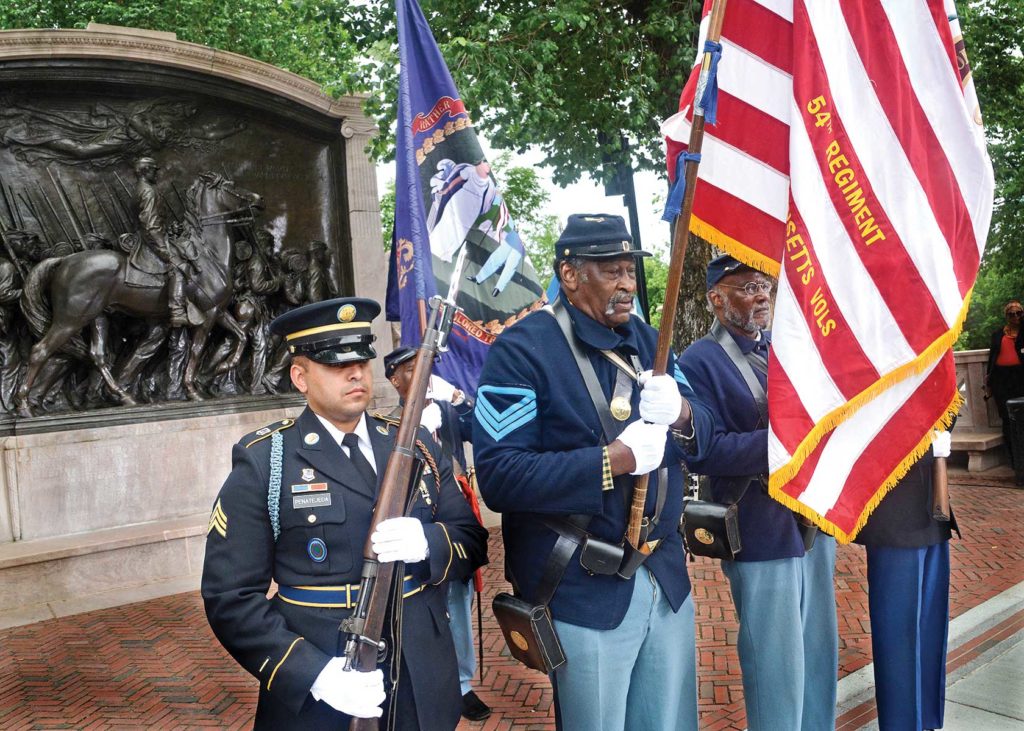Mass. 54th Regiment monument rededicated
Dignitaries turn out to celebrate restoration

Hundreds of dignitaries gathered in front of the State House last week for the rededication of the newly-restored Robert Gould Shaw and Massachusetts 54th Regiment memorial.
The monument, which was completed in 1897, underwent a three-year, $3.2 million restoration process. The completion of the restoration coincides with the 125th anniversary of the monument, which centers around a bas relief of Robert Gould Shaw and members of the 54th Regiment.

A Massachusetts 54th reenactor places a wreath at the memorial PHOTO: OBINNA “OBY”OJIMB
“This monument is without question — and I’ve seen a lot of them — the greatest work of public art in the United States,” said historian David Blight, speaking during the rededication. “No memorial has inspired as much poetry, symphonies and speeches as this monument.”
The monument depicts Colonel Robert Gould Shaw, the white commander of the Army’s first all-Black regiment, astride his horse, sword drawn. Marching alongside him with muskets resting against their shoulders are 16 Black soldiers, whose faces sculptor Augustus Saint-Gaudens modeled after men he met in train stations and on the streets of Boston and New York.
The work was remarkable for its time. While it emphasizes Shaw’s status as commander, the portrayal of Black men at war was something seldom seen in Victorian America.
The regiment would go on to launch a bloody attack on Fort Wagner outside of Charleston, South Carolina. The regiment lost nearly half its soldiers in the attack, which was ultimately unsuccessful.
“Although the attack failed, their valor paved the way for more than 180,000 men of color to enlist in the war,” noted Lt. General Gary Brito, the U.S. Army’s deputy chief of staff, at the rededication event.
The monument’s location, directly across from the State House, recalls the May 1863 march that members of the regiment made along Beacon Street when thousands of Bostonians, along with dignitaries including abolitionist Frederick Douglass, turned out to see the Army’s first all-Black unit.
“Today, this memorial is an important reminder that the work of justice cannot, must not, fall only upon those who suffer most directly under injustices,” said Mayor Michelle Wu. “It is a reminder of what all art at its best can do, to inspire us, call us to be better versions of ourselves in service of our communities.”
The rededication ceremony included a video speech from Gov. Charlie Baker, a video tribute to the regiment by filmmaker Topper Carew and a video of a Boston Children’s Chorus performance of original music titled, “Those Heroes who Healed the Nation.”







